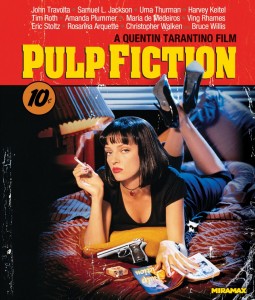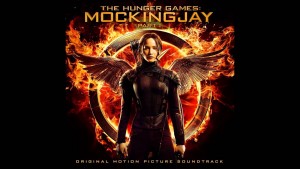Why Are Songs the Last Item in Film Credit Roll?
Hear Echoes at the Oscars tonight.
When you contemplate movies, is music the last thing you think about? Or perhaps is it the gaffer, the grip or the stand-in, all technical aspects of film making.
 As we approach the Oscars this weekend, I’m considering the value of music in movies. Whether it’s the underscore or a song in the clear the impact of music on a film is undeniable. How much less poignant would Gladiator be without Lisa Gerrard and Hans Zimmer’s “Now I Am Free.” Would 2001: A Space Odyssey be nearly as memorable without the classical works director Stanley Kubrick selected. The film is remembered as much for its score with Richard Strauss’s “Thus Sprach Zarathustra” and Gyorgy Ligeti’s “Atmospheres”as its story and visuals.
As we approach the Oscars this weekend, I’m considering the value of music in movies. Whether it’s the underscore or a song in the clear the impact of music on a film is undeniable. How much less poignant would Gladiator be without Lisa Gerrard and Hans Zimmer’s “Now I Am Free.” Would 2001: A Space Odyssey be nearly as memorable without the classical works director Stanley Kubrick selected. The film is remembered as much for its score with Richard Strauss’s “Thus Sprach Zarathustra” and Gyorgy Ligeti’s “Atmospheres”as its story and visuals.
And what about songs themselves? I’m not talking about the ones composed for musicals like Frozen’s “Let It Go.” I mean actual songs that are out in the real world. Where would Easy Rider be without Steppenwolf’s “Born to Be Wild” supercharging the cruising motorcycles. It’s iconic. Can anyone who saw the last scene of HBO‘s Six Feet Under imagine it without Sia’s “Breathe Me.” What do you remember from The Breakfast Club most? “Don’t You Forget About Me” by the Simple Minds. What underscored a funeral scene in The Big Chill, a film based around songs? The Rolling Stones’ “You Can’t Always Get What You Want.” Trainspotting is full of memorable songs like Brian Eno’s “Deep Blue Day” (who can forget the toilet dive?) and Lou Reed’s “A Perfect Day” (later completely, inappropriately and criminally used in a video game ad last year) Name any scene in Pulp Fiction and a song comes along with it from Dick Dale’s “Miserlou” to Chuck Berry’s “You Never Can Tell.”
But heaven forbid ever seeing a song in the credits if you liked it in the film. Oh, it’s there, but you have to sit seven to fifteen minutes to see it actually listed. I remember waiting, impatiently, to discover who sang “Bring Me Back to Life” in Daredevil (Evanescence) or what that last song was in The Hunger Games: Mockingjay Part 1 (Lorde’s “Yellow Flicker Beat”) or who did that great guitar riff in Wild at Heart (Chris Isaak’s instrumental version of “Wicked Game”).
 Yes, I know I could have Shazamed it or looked it up on-line, but that’s not the point. The issue is, how did it ever come about that a pivotal song in a film is less important than the armies of faceless technical and crafts people on a movie? I’m not just talking grips, gaffers, digital artists, third unit directors or hair stylists. In movie credits the car driver, caterer, travel coordinator, assistant to whomever, contact lens tech and picture car coordinator all get listed before the songs. Believe me; no one is waiting to see them except their family. But songs, an element of film that everyone is interested in, they come right at the end, just before the copyright information.
Yes, I know I could have Shazamed it or looked it up on-line, but that’s not the point. The issue is, how did it ever come about that a pivotal song in a film is less important than the armies of faceless technical and crafts people on a movie? I’m not just talking grips, gaffers, digital artists, third unit directors or hair stylists. In movie credits the car driver, caterer, travel coordinator, assistant to whomever, contact lens tech and picture car coordinator all get listed before the songs. Believe me; no one is waiting to see them except their family. But songs, an element of film that everyone is interested in, they come right at the end, just before the copyright information.
Of course, TV is even worse. They don’t even list the songs, not that you’d glimpse them in the blur of their high speed credit rolls.
Song credits should be right up front of the end credit roll, possibly right after the original score composer, but certainly before those who, while their work is important to movie making, aren’t actually part of the film in terms of narrative and emotional power.
It’s ironic that music has such an emotional impact while also being culturally devalued, acknowledged as if it were an afterthought, no more important to the act of creation than the second director’s third assistant.
~John Diliberto
